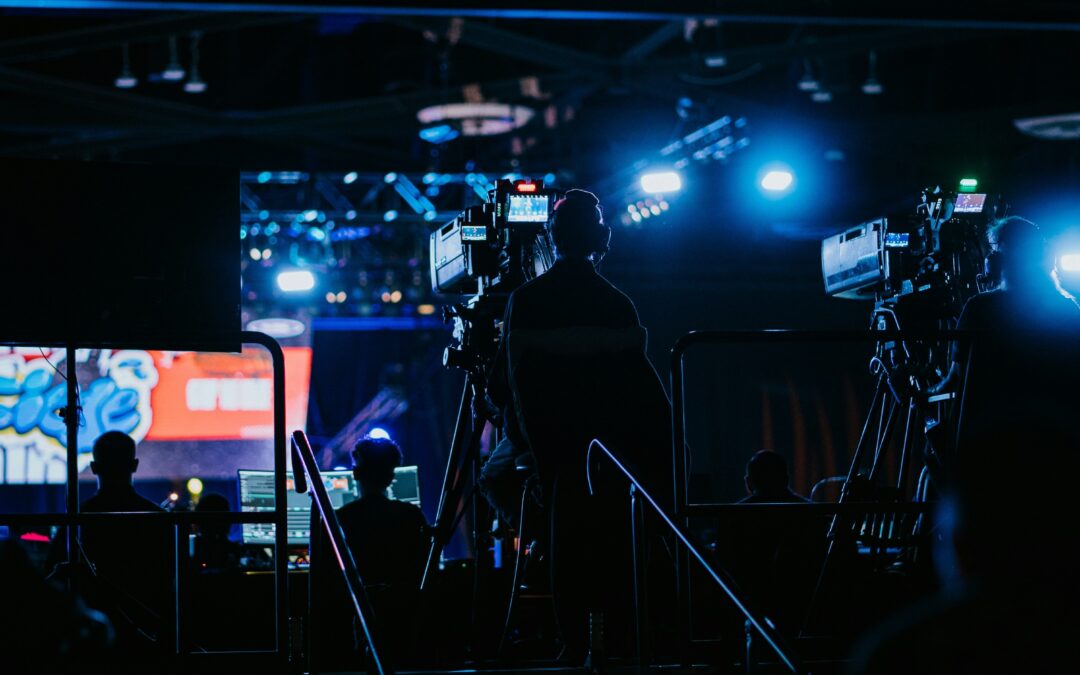Sara Fitzgerald, treasurer of the UCC Media Justice Ministry Board of Directors and guest author of this post, is retired following a career in journalism and public policy that included 15 years at The Washington Post as an editor and new media developer.
When I entered the University of Michigan in 1969, I was eager to become a journalist and immediately signed up for Journalism 201, the department’s large survey course. It was there that I first learned about Edward R. Murrow and watched his 1956 dissection of the Army-McCarthy hearings. We studied the role that Murrow’s news producer, Fred Friendly, played in all of that, a history that has more recently been captured in the movie and play “Good Night, and Good Luck.”
One of the books we were assigned to read was Friendly’s 1967 memoir Due to Circumstances Beyond Our Control. It described his decision to resign from CBS when the network refused to preempt a scheduled episode of I Love Lucy to provide live coverage of the first U.S. Senate hearings on the conduct of the war in Vietnam. (This was well before the advent of C-SPAN and cable news shows.) In his book, Friendly warned about the pernicious effects that commercial considerations could have on broadcast news and freedom of the press.
Friendly’s warnings came back to me as I learned that ABC had announced it was indefinitely suspending the late-night show Jimmy Kimmel Live! because of comments the host made in the wake of the assassination of Charlie Kirk, co-founder of Turning Point USA.
Following the guidance of the Know Peace Online initiative of the UCC Media Justice Ministry, I’m not going to repeat Kimmel’s comments or enter into a debate about whether his words were accurate. I may be distressed about ABC’s decision—as I was about CBS’s decision to terminate Stephen Colbert’s contract for its late-night show—but ABC is free to make decisions about its programming.
But what is really concerning about Kimmel’s suspension is the role that Federal Communications Commission Chairman Brendon Carr—and by extension President Trump—played in threatening to pull the broadcast licenses of ABC affiliates if they continued to air Kimmel’s show.
In an interview with a YouTube host, Carr cited Kimmel’s remarks and said, “What people don’t understand is that the broadcasters … have a license granted by us at the FCC, and that comes with it an obligation to operate in the public interest. When we see stuff like this, look, we can do this the easy way or the hard way. These companies can find ways to change conduct on Kimmel, or there’s going to be additional work for the FCC ahead.”
Following Carr’s comments, the two companies that own the most local ABC affiliate stations, Sinclair Broadcasting and Nexstar, announced they would no longer broadcast Kimmel’s show. Perhaps not coincidentally, Nexstar is attempting to acquire another large broadcast group which will need approval from Carr’s FCC.
The FCC chairman’s bullying of the network is clearly a perversion of the notion of “operating in the public interest,” not to mention freedom of the press itself. Those of us affiliated with the UCC Media Justice Ministry decry the proliferation of “hate speech,” but are fully aware that, except in rare circumstances, it is protected speech. Even Charlie Kirk understood that, posting on X in May 2024: “Hate speech does not exist legally in America. There’s ugly speech. There’s gross speech. There’s evil speech. And all of it is protected by the First Amendment.”
During those years that I was hoping to pursue a career in journalism, the Rev. Everett C. Parker, founder of our organization, then called United Church of Christ’s Office of Communication, Inc., was mounting a successful challenge to the broadcast license of WLBT-TV in Jackson, Mississippi, for its failure to cover its local Black community. The station went so far as to excise those parts of the nightly network news shows that covered the growing civil rights movement in the South.
Through its advocacy, OC Inc. established the right of individuals to petition the FCC, helped defend the Fairness Doctrine, led the FCC to require stations to promote the diversity of their staffs, and supported the development of public broadcasting—all initiatives that seem doomed by the policies of the current administration.
How do we turn this tide? It can feel overwhelming.
After studying Fred Friendly’s warnings, I went on to become a journalist, and the high point of my career was the 15 years I spent as an editor at The Washington Post. Sadly, I decided to cancel my Post subscription earlier this year as a succession of friends and former colleagues chose to resign after their opinions were silenced.
I hope that Colbert and Kimmel can find new homes—on platforms that are beyond the misguided, illegal intervention of the current FCC commissioners. I can appreciate that the president does not enjoy being the brunt of their late-night routines, but their comedy routines (generally viewed in morning-after clips) have helped to keep this viewer sane through these very challenging times.
In the meantime, I can make a decision to boycott ABC, including WJLA-TV, the Washington, D.C. affiliate, a flagship station of Sinclair Broadcasting, which has been building a large network of stations that promote a conservative viewpoint. The FCC appears poised to lift all limits on broadcast ownership whatsoever, including one that currently blocks Nexstar’s acquisition.
This rampant deregulation will enable even more mergers, which will put even more pressure on broadcasters to comply with the President’s and Carr’s wishes. We can see in this week’s events the results we feared.
Boycotting ABC—and maybe CBS—may mean that I will no longer be able to watch my alma mater take on Ohio State. But there’s a larger principle at stake.

